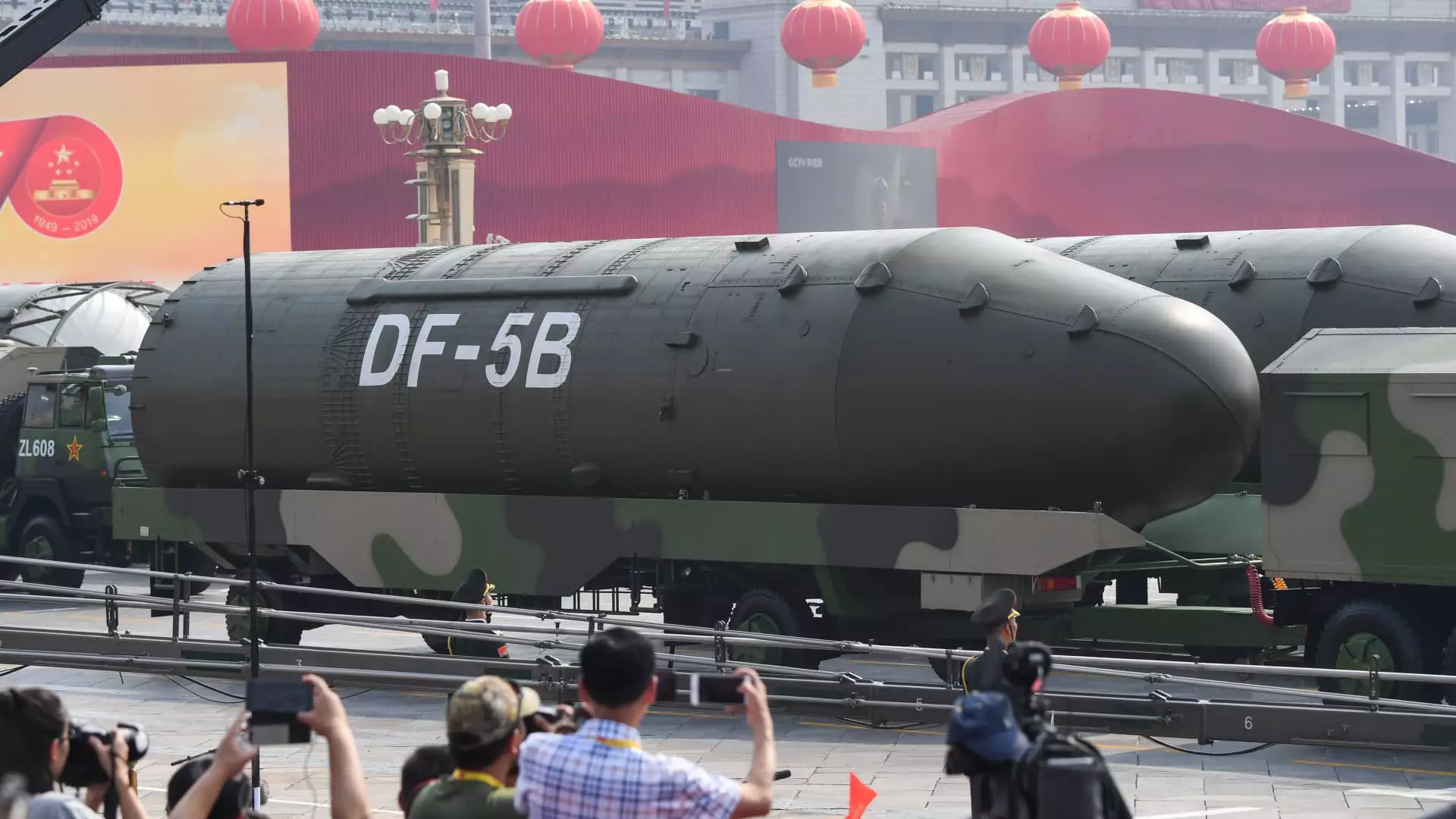Taiwan has reported an escalation in military activities from China, particularly following a series of missile tests conducted in Inner Mongolia. The Taiwanese defense ministry has described these developments as “waves” of missile launches, which are significant not only due to their frequency but also because of the strategic location where they are taking place. This region, approximately 2,000 kilometers from Taiwan, is a critical area for surveillance and military assessment by Taiwanese forces, underscoring the ongoing military tensions across the Taiwan Strait.
Taiwan’s vigilance comes in the wake of China’s increasing assertiveness regarding its territorial claims over Taiwan, viewing it as a breakaway province rather than an independent state. This perception fundamentally shapes China’s military posture. The contrast between China’s approach and Taiwan’s democratic governance highlights a broader ideological rift that complicates regional security dynamics.
China’s Rocket Force, responsible for the nation’s conventional and nuclear missiles, is becoming increasingly prominent in Beijing’s military strategy. The recent missile tests reflect an intensifying focus on enhancing both the capabilities and readiness of this force. These developments are strategic signals aimed not only at Taiwan but also at the United States and its allies, particularly amid heightened U.S.-Taiwan relations following significant political visits such as that by Nancy Pelosi.
Furthermore, the trajectory and capabilities demonstrated in these missile tests emerge as a crucial factor in establishing military supremacy. Such tests serve dual purposes: they act as direct demonstrations of force and as exercises to refine operational readiness. They are strategic moves in a chess game, where Taiwan watches closely, aware of its own limited military options should hostilities arise.
The recent missile tests occur against a backdrop of political tension involving Taiwan’s President Lai Ching-te, who has faced Chinese hostility since taking office. His administration’s willingness to engage in dialogue with Beijing has so far been met with dismissal, as the Chinese government views his stance as separatist. This situation raises important questions regarding the future of cross-strait relations and the potential for conflict.
While Lai advocates for Taiwan’s right to self-determination and resists China’s sovereignty claims, the ongoing military rhetoric from Beijing complicates peace efforts. The Taiwanese public may grow increasingly anxious as news of military exercises and missile launches permeate local media, putting pressure on the government to enhance its defense capabilities in response to perceived threats.
Responses from the international community are also crucial in this evolving situation. Taiwan’s close ties with the United States contribute to a complex geopolitical landscape where any military aggression from China could provoke a response from America and its allies. The situation requires careful diplomacy, as miscalculations on either side could lead to unintended escalations.
In these precarious circumstances, Taiwan stands firm in its commitment to monitoring military developments while bolstering its defense capabilities. As militarization in the region intensifies, the delicate balance of power will increasingly hinge on diplomatic engagements and the strategic decisions of key players in the Asia-Pacific region.


Leave a Reply